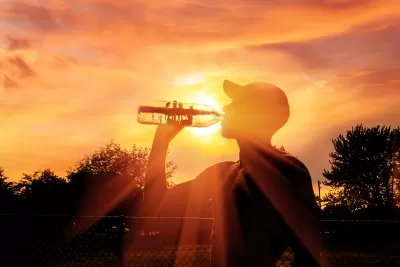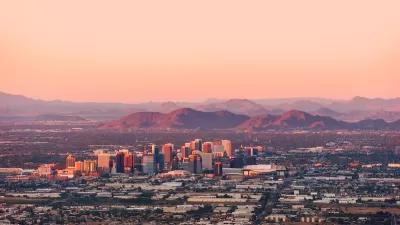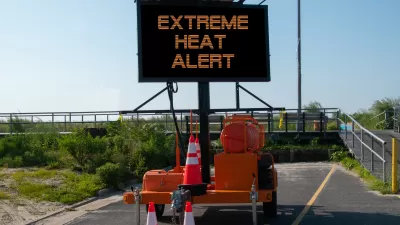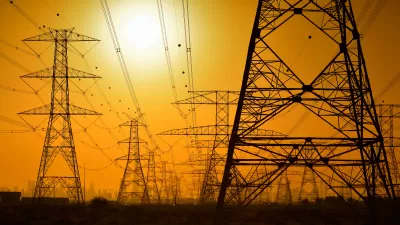As extreme heat waves become more common and widespread, the administration is directing federal resources to heat mitigation efforts.

“With heat waves spreading across the United States, President Joe Biden on Thursday announced new steps to protect workers — including a hazard alert notifying employers and employees about ways to stay protected from extreme heat — as well as measures to improve weather forecasts and make drinking water more accessible,” according to an article by Chris Megerian, Drew Costley and Matthew Daly for NBC 4 Washington.
In recent weeks, more than 40 percent of the country has been under extreme heat advisories. In Washington state, the heat index was expected to reach 110 degrees last weekend. “It's a worldwide problem, and scientists calculate that July will be the hottest month on record,” the authors point out.
“As part of the initiative, the department will issue a hazard alert notifying employers and employees about ways to stay protected from extreme heat, which has killed 436 workers since 2011, according to federal statistics.” President Biden also directed the Labor Department to boost inspections of dangerous workplaces and enforcement of heat protection regulations.
“The Biden administration plans to spend $7 million to develop more detailed weather predictions to anticipate extreme weather like heat waves, plus $152 million to boost drinking water infrastructure and climate resilience in California, Colorado and Washington.”
FULL STORY: Biden looks to provide relief from extreme heat as record temperatures persist

Alabama: Trump Terminates Settlements for Black Communities Harmed By Raw Sewage
Trump deemed the landmark civil rights agreement “illegal DEI and environmental justice policy.”

Planetizen Federal Action Tracker
A weekly monitor of how Trump’s orders and actions are impacting planners and planning in America.

The 120 Year Old Tiny Home Villages That Sheltered San Francisco’s Earthquake Refugees
More than a century ago, San Francisco mobilized to house thousands of residents displaced by the 1906 earthquake. Could their strategy offer a model for the present?

LA’s Tree Emergency Goes Beyond Vandalism
After a vandal destroyed dozens of downtown LA trees, Mayor Karen Bass vowed to replace them. Days later, she slashed the city’s tree budget.

Sacramento Leads Nation With Bus-Mounted Bike Lane Enforcement Cameras
The city is the first to use its bus-mounted traffic enforcement system to cite drivers who park or drive in bike lanes.

Seattle Voters Approve Social Housing Referendum
Voters approved a corporate tax to fund the city’s housing authority despite an opposition campaign funded by Amazon and Microsoft.
Urban Design for Planners 1: Software Tools
This six-course series explores essential urban design concepts using open source software and equips planners with the tools they need to participate fully in the urban design process.
Planning for Universal Design
Learn the tools for implementing Universal Design in planning regulations.
Ada County Highway District
Clanton & Associates, Inc.
Jessamine County Fiscal Court
Institute for Housing and Urban Development Studies (IHS)
City of Grandview
Harvard GSD Executive Education
Toledo-Lucas County Plan Commissions
Salt Lake City
NYU Wagner Graduate School of Public Service





























